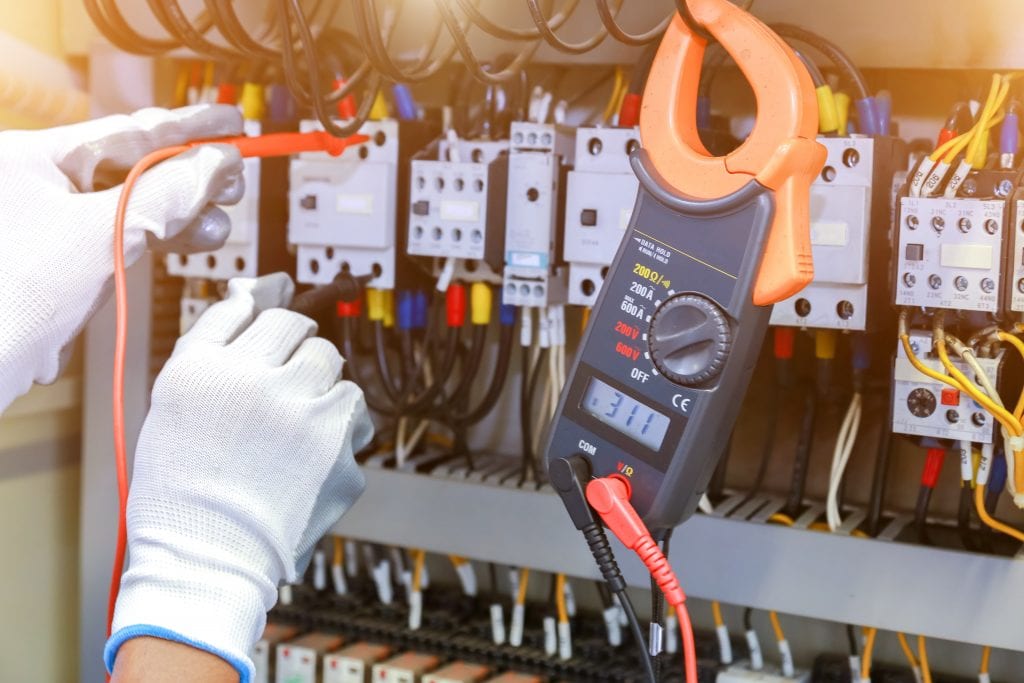An electrical lineman and an electrical wireman are both specialized electrical workers. Each likely underwent similar training in an electrician training program at a trade school or community college. Both deal with installing, repairing and maintaining electrical components. Both work with electrical wiring in some form or another. In many ways, that’s where the comparisons end.
While all electrical linemen have the ability to work their magic on power lines, there are actually two kinds of wiremen: inside and residential. Inside wiremen specialize in installation and maintenance of electrical components in commercial and industrial buildings. Residential wiremen, on the other hand, work in houses, apartment buildings, condominiums and other places of residence, as the name implies. For the sake of this post, we’ll discuss wiremen in general.
So what are the differences between linemen and wiremen? Here are just a few:
Heights
Working as an electrical lineman is a lot easier if you are not afraid of heights. Electrical linemen work on electrical power lines, which requires going up where the lines are. This usually means climbing or going up in a cherry picker to service utility poles and transmission towers.
While the lowest height that power lines can hang in most residential areas is 10 feet, most utility poles are 40 feet long with six feet of them in the ground. That means linemen are usually 30 feet or higher in the air while servicing them. Transmission towers, alternatively, tend to range between 50 to 180 feet in height. Successful linemen are comfortable working at these heights for extended periods, sometimes multiple hours at a time. Wiremen, on the other hand, do not need to worry about heights.

On-the-Job Danger
It’s essential for both wiremen and linemen to know what they are doing in order to avoid getting electrocuted. However, linemen are working with higher voltage currents than their wiremen counterparts. Long-distance transmission lines can carry currents that are hundreds of thousands of volts strong. On the lower end of the spectrum, power lines that provide electricity in residential and business areas often carry currents of less than 10,000 volts, which can be just as lethal as the current of a transmission line. It goes without saying that linemen need to use extreme caution when working on the lines.
On top of the fatal amounts of electricity they work near on a daily basis, electrical linemen are also the first ones to be sent out to repair lines in the midst of thunderstorms and other natural disasters. This adds a whole other level of danger to an occupation that is already among the most dangerous in the country.
Yet another source of potential injury or fatality is falling from the heights at which they work. Electrical linemen need to carefully follow safety procedures to avoid injury and death. While wiremen don’t deal with as much danger as linemen, they still need to be cognizant of the electricity around which they work in business and residential settings.
Buildings and Power Lines
As you can probably tell from the other differences between linemen and wiremen we have discussed thus far, they work in very different settings. Electrical linemen spend most of their time on the job up in the air working on utility poles and power lines, while wiremen devote their days to installing, maintaining and repairing electrical components in buildings. Though the work each kind of electrical worker does is different and done in vastly different settings, they both play essential roles in bringing us the power of electricity.
Whether you see yourself working as a lineman or a wireman, you will be happy to know that there is a demand for both. According to the Bureau of Labor Statistics, the number of electrical power line installation and repair jobs is projected to increase 14 percent by 2026, compared to the 2016 number. Meanwhile, the number of electrician jobs, which includes wireman roles, is expected to climb by nine percent during the same period.
In short, the current demand and expected shortage of skilled trade workers in the coming years makes now a good time to become an electrical worker. There is no better place to learn the essentials of electrical work than Chicago’s Coyne College.

Start Your Electrical Work Career at Coyne College
Coyne College is one of Chicago’s top trade schools and offers two programs for aspiring electrical workers: electrical construction and planning, and electrical construction and maintenance. Both programs are available during days and nights at the Coyne’s Chicago Loop campus at the intersection of State and Madison streets. At Coyne College, we’re dedicated to helping you fit your electrical education into your busy schedule.
The electrical construction and planning program can be completed in as few as 78 weeks. The electrical construction and maintenance program, on the other hand, can be finished in 42 to 56 weeks, depending on whether you take day or night classes.
As a student in either of Coyne College’s electrical programs, you will be submerged in classes such as:
- Electrical and Electronic Principles
- Electrical Test and Equipment Safety
- Electrical Construction – Residential
- Electrical Theory and Applications
- And more!
You will learn the ins and outs of the electrician trade in a setting that focuses on your individual success and be taught by Coyne’s highly knowledgeable instructors who have years of real-world experience under their belts.
The Coyne College career services department can help students with job placement, including apprenticeships. Coyne College has more than 110 years of experience in helping transform students with dreams into qualified, skilled trade professionals.
Discover all that Coyne College has to offer and begin your journey to a new career today by visiting https://www.coynecollege.edu/.


